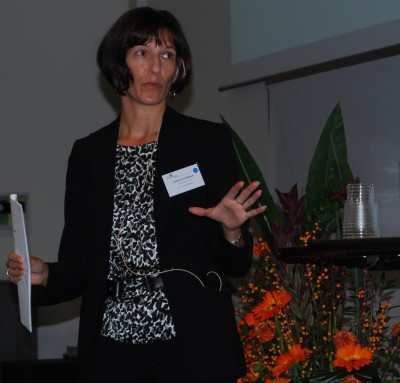Norway’s “flat, flat, flat” management hierarchy poses a huge challenge for new leaders recruited from overseas. It can also explain why there’s so few of them within the Norwegian business world.

“Many leaders can feel so disrespected when they come to Norway,” said Kimberly Lein-Mathisen, global alliance leader for the large US pharmaceutical company Eli Lilly. Everyone is equal, and employees are accustomed to being consulted on most matters, and having their say.
She ought to know, since she first came to Norway to head Eli Lilly’s local operations and had to adjust to the Norwegian way of running a business. She shared her experiences at what may become an annual event in Oslo: A Global Mobility Forum aimed at attracting foreign talent and retaining it.
“It’s my responsibility to make some adjustments in every new country I come to,” said the American executive, who arrived in Oslo after a posting in London. She’s originally from the Chicago area but left the Midwest in what turned out to be a long migration towards the northeast.
Her arrival in January (“not a good time to move to Norway,” she cautioned) added to the challenge of realizing that Norway is not a “blue-ribbon society” where people are proud to boast their accomplishments in and out of work. Rather, there’s more a tendency “to keep your head down” in a society known for its Janteloven characteristics, where no one is supposed to be better than anyone else (except in the world of sports).
Lein-Mathisen also noted the unique life-work balance in Norway, which she thinks is great, even though it seemed to her that “everyone went home at 3:45pm.” And she registered a “bipolar” situationbetween rich and poor, and traditional vs progressive ways of doing business.
Lein-Mathisen simply seemed to launch into the local way of doing things, while striving to “be myself.” She started studying the Norwegian language immediately, learned to understand local values and even found herself questioning her ambitions. The Norwegians would ask “why” someone would want to make a major career move, instead of simply assuming that moving onwards and upwards was the best.
Lein-Mathisen also picked up on the Norwegian management tendency “to see the people, show warmth, interest and compassion.” It was also important to “mentor the talents” and focus on communication training.
“It’s largely the job of the immigrant to understand and adapt,” she said. “So build a bridge to meet them (the locals) first.”
Views and News from Norway/Nina Berglund
Please support our stories by clicking on the “Donate” button now:

